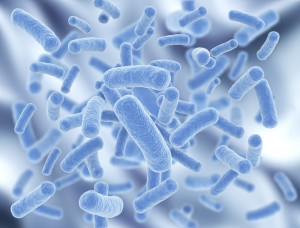 (Beth Janes : Good Housekeeping)
(Beth Janes : Good Housekeeping)
These days, probiotics seem to be everywhere — touted in the soft-serve at your local fro-yo joint and the kimchi on your fancy-schmancy sandwich. And yet, seemingly inexplicably, you probably aren’t getting enough of them: Only 20% of Americans incorporate probiotics into their diets, according to a recent survey by market research firm Mintel.
That’s surprising when you consider that, unlike with some other nutritional trends, there’s solid research confirming probiotics’ benefits. “We all live on a bandwidth of health,” says Colin Hill, Ph.D., president of the International Scientific Association for Probiotics and Prebiotics. “Probiotics can shift you in the right direction or delay a progression in the wrong direction, especially if you take them prophylactically.” In other words, this is one bandwagon worth jumping on.
So What Are They?
To put it simply, probiotics are live microorganisms, such as strains of bacteria, that in adequate amounts give you a health benefit. They can be developed and grown in a lab and put in pills, powder, yogurt, or other foods or drinks. When probiotics are present in your gut, they act like peacekeepers, helping to restore order and keep things humming. And scientists are finding that using probiotics to tinker with the gut’s bacteria balance may offer a new way of treating illness and keeping people healthy.
How Do They Work?
They take up temporary residence in your gut. Probiotics don’t move in permanently — you have to keep consuming them for maximum benefits. It requires about five days of habitual ingestion for probiotics to build up a presence, says Daniel J. Merenstein, M.D., a probiotics expert and an associate professor of family medicine at Georgetown University. (Taking them in less frequently may help a little.)
They suss out the environment. Probiotics are smart. “Some of the ones that help with diarrhea also help with constipation. We think they go in, figure out what’s needed and respond by either downregulating inflammation or upregulating your immune response,” says Gregor Reid, Ph.D., director of the Canadian Research & Development Centre for Probiotics.
They negotiate with “terrorists.” Most pathogens don’t want to do real harm; they’re happy to just eat and hang out. In layman’s terms, probiotics might say, “We’ll let you live, but you can’t release your toxin.” Then they might produce compounds that prevent a toxin’s release, rendering bad bugs harmless, Reid says.
They improve the gut’s barrier. “In your gut, only one layer of cells stands between you and death,” Reid says. Although dramatic, that accurately describes your GI tract’s ultrathin barrier, which allows nutrients from food to pass through and repels toxins. If that barrier is disrupted, pathogens could enter your bloodstream, making you very sick. Probiotics tighten the binding between cells and may stimulate mucus production, shoring up the barrier and making it difficult for problematic bugs to wreak havoc.
They clean up the slime. “In the case of an infection, bacteria often create a biofilm, which is like the slime that builds up on the underside of a boat. Certain probiotics produce a soaplike material that breaks up that film,” Reid says.
They starve out pathogens. Since they compete with the bad guys for food, probiotics keep harmful bacteria in check by making it hard for them to thrive.
What Are the Benefits?
Two of the biggest reasons to take probiotics are to prevent or manage GI issues and to lower your odds of catching a bug. “If you’re traveling or stressed, or not eating or sleeping well, that’s when you’ll notice that probiotics really work,” Dr. Merenstein says. But newer research suggests that probiotics also have the potential to help prevent or treat other conditions, such as high cholesterol, allergies, and even anxiety. Probiotics have such far-reaching effects because your gut does, too: It houses more nerve endings than any place in the body (besides the brain), and it’s ground zero for your immune system’s function.
As you may know, to build a strong immune system, people need exposure to a wide variety of microorganisms, something modern-day Americans don’t typically get. Plus, we use antimicrobials — found in some soaps and even toothpaste — that kill good bacteria as well as bad. Probiotics may fill the gap, says Hill. And unlike disease-causing germs, probiotics create almost no harmful side effects (some people experience gas or a change in bowel movements). Nearly everyone can take probiotics, but if you have a digestive disorder such as leaky gut or celiac disease, talk to a doctor first.

